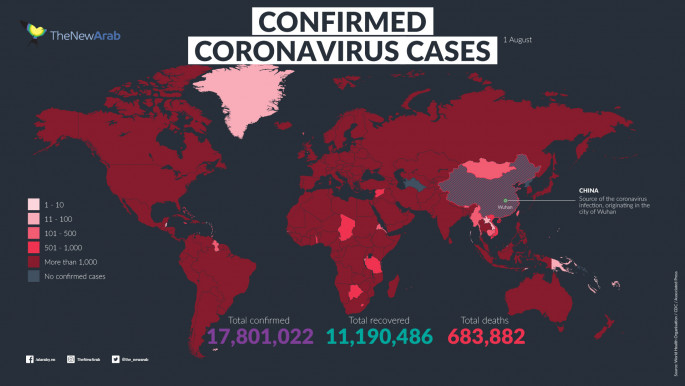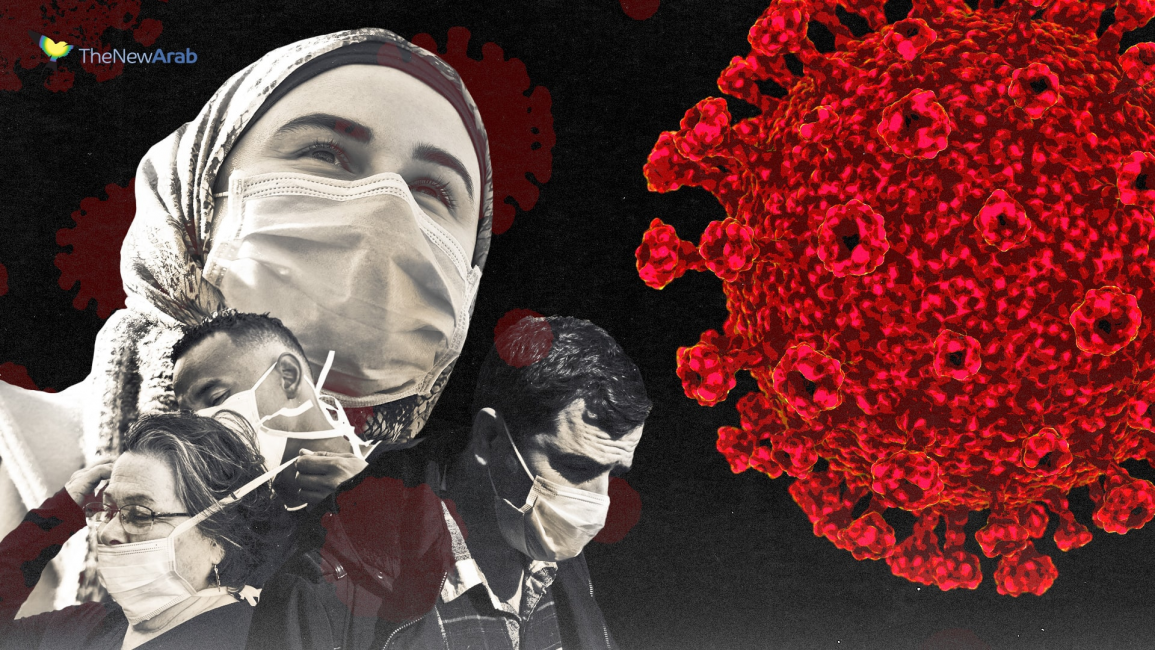The Middle East at war with coronavirus: Top stories from 21 March
Iran releases French academic as death toll jumps again
France's President Macron jubilantly announced on Saturday morning that Iran had freed Roland Marchal, a French researcher detained in Iran on spurious national security charges, in an apparent prisoner swap with Iranian engineer Jallal Rohollahnejad, who had been released by France on Friday.
The swap comes as 10,000 prisoners were pardoned by Iran's supreme leader on the Persian New Year festival of Nowruz. A week previously, the country temporarily released 85,000 detainees in a bid to avert coronavirus running rife in its overcrowded prisons.
Marchal's partner and fellow academic Fariba Adelkhah, a dual French-Iranian citizen, remains behind bars despite ill health after waging a hunger strike for weeks.
Meanwhile, Iran confirmed that deaths from COVID-19 had risen by 123 on Saturday, bringing the official death toll to 1,556. New confirmed cases also rose by 966, meaning at least 20,610 people are known to be infected in the Islamic Republic
However a total of 7,635 people in Iran have now recovered from the disease.
 |
| Click to enlarge |
Despite pleas from the authorities for people not to travel during Nowruz, when families traditionally stage large gatherings, around three million people have left the 13 most virus-affected provinces by road since 17 March.
The government has so far resisted implementing shutdown measures such as those seen in other hard-hit countries, prompting widespread criticism.
However some provinces popular with tourists have ordered hotels and other accommodation to close to ward off Nowruz holiday makers.
Jordan goes into lockdown
Air raid sirens echoed across Jordan's capital on Saturday to mark the start of a three-day curfew, where all shops will close and people are banned from the streets. Anyone caught violating the curfew faces up to one year in prison.
Twitter Post
|
The measure comes days after the king enacted emergency law by royal decree, in order to pass strict measures to curb the spread of the virus. Human rights groups warned that such powers should only be used proportional to the threat posed by the pandemic.
Jordan had 85 COVID-19 as of 21 March, but the government has already imposed a host of the pre-emptive restrictions, including closing the kingdom’s land and air borders and converting over 34 hotels into quarantine centres and banning crowds of 10 or more people.
Other MENA countries to enact lockdowns include Tunisia, which did so on Friday, as well as Israel, which has shut down the worst affected parts of the country, as well as the occupied West Bank.Turkey developing disinfecting ATMs
An Istanbul-based tech company has innovated a way to keep paper money disinfected, by using ultraviolet (UVC) light inside ATMs to eliminate bacteria and viruses in just 15 minutes.
During disease outbreaks, governments are often forced to collect paper money, burn it, and print new notes.Money Shower's CEO said that after pilot trials in Turkey's leading banks, the company aims to integrate the model into most ATMs by 2023.
Following Friday's news that five elderly people had succumbed to the virus, bringing the overall total to nine, Turkey bolstered its measures to keep its older generation indoors. These included removing park benches from the ground in an attempt to stop public gatherings of elderly Turks who are shirking social distancing advice.
The number of confirmed coronavirus cases in the country currently stood at 670 on Friday, more than doubling in 24 hours.
On Friday, police deployed at the entrance of several mosques in Istanbul so as not to allow worshippers to perform mass prayers.
Egypt's churches and mosques finally bow to pressure to close
Egypt's Coptic church finally gave in to public pressure on Saturday, suspending all services including liturgies for the two weeks to stem the spread of COVID-19.
 |
|
| Click to enlarge |
Al-Azhar, Egypt and the Sunni Muslim world's foremost religious authority followed suit and officially announced it was temporarily suspending Friday prayers as well as daily services.
On Thursday, it had authorised other mosques to do the same.
Meanwhile there has been increased pressure from human rights groups, social media and even some politicians for authorities to release detainees in order to prevent a disastrous outbreak of the disease in the country’s notoriously unsanitary prisons.
Egyptians have started online campaigns using the hashtag #LetthePrisonersOut and petitions gathering thousands of signatures.
UAE and Israel report first COVID-19 deaths
The United Arab Emirates on Friday reported the first two deaths from coronavirus in the country, the same day Israel announced its first COVID-19 victim.
Abu Dhabi has reported 140 infections so far, of whom 31 have recovered. One of the individuals was a 78-year old Arab national who had arrived in the country from Europe. The other individual, a 58-year-old Asian national and resident of the UAE, had prior chronic illnesses - heart disease and kidney failure.
Like other countries around the world, the UAE has introduced restrictions on passenger arrivals, but has not so far imposed confinement measures, and public spaces, such as shopping centres and restaurants - remain open.
More than 1,300 coronavirus infections have been detected in the Gulf region, with most cases initially identified among travellers returning from Iran which is one of the world's worst affected countries.
Meanwhile, an 88-year-old Israeli man died from a coronavirus-induced heart attack in Jerusalem's Shaare Zedek hospital. He reportedly suffered with various underlying health conditions.
Health officials said on Friday that 14 of 705 of its confirmed cases remain in a "serious condition".
Follow us on Facebook, Twitter and Instagram to stay connected



